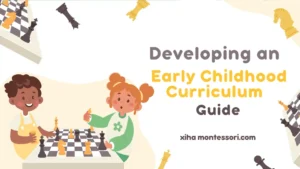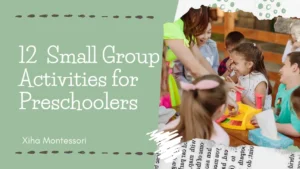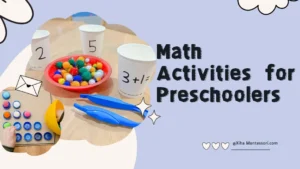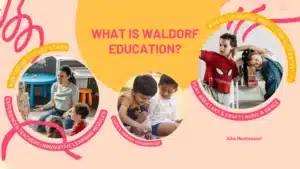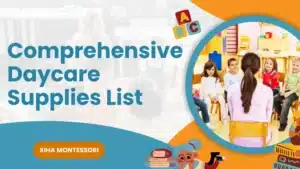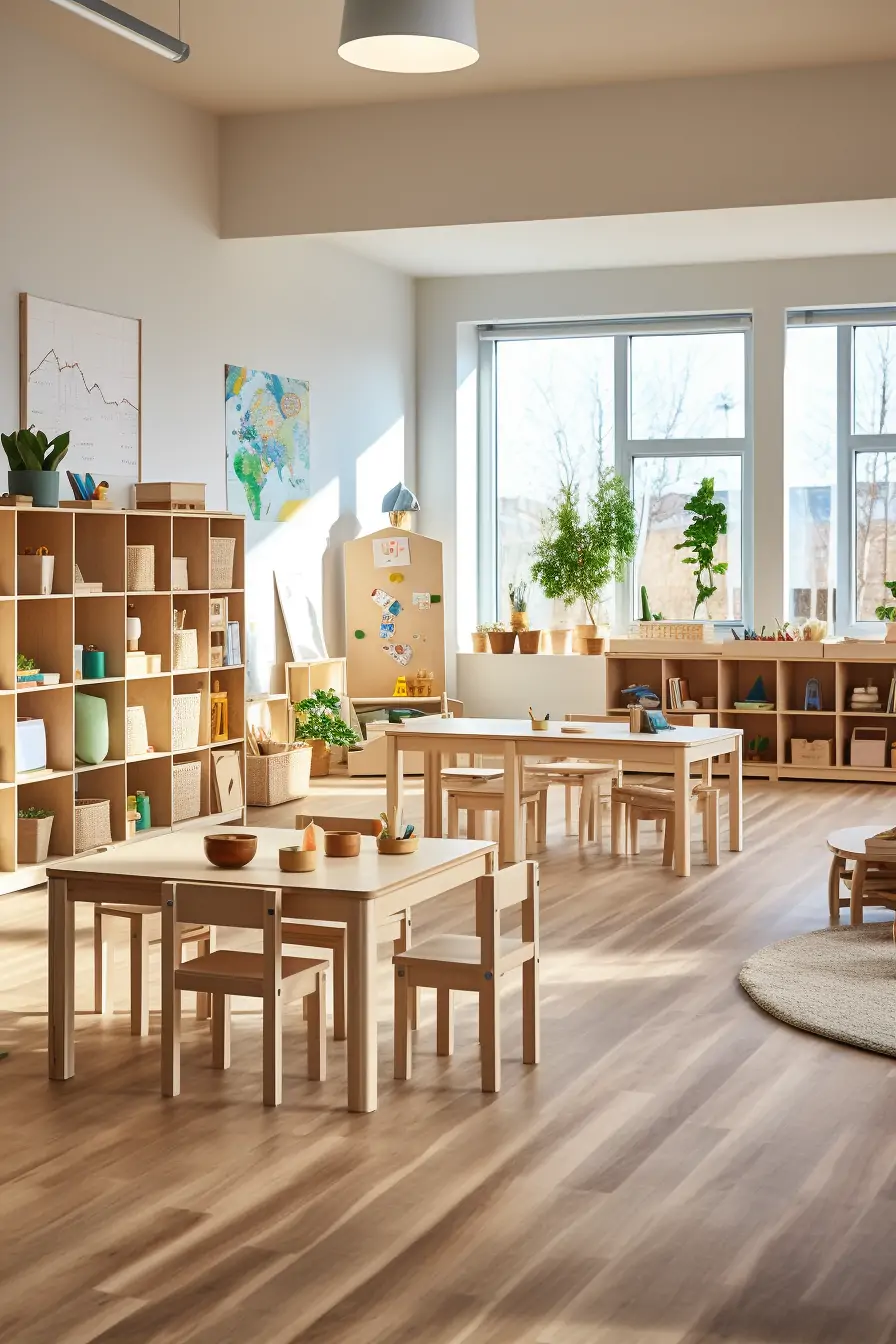Montessori teaching five areas
Most of the contents of traditional early childhood education are teachers teaching singing, storytelling, and playing games. Montessori teaching is based on the discovery that “children have the gift of self-education” and “intelligence can be changed”. Therefore, its teaching contents not only use rich teaching materials and teaching aids as the medium but also emphasize children’s spontaneous self-learning and self-growth.
The content of Montessori teaching can be roughly divided into five major areas according to the types of teaching aids, namely, daily life education, sensory education, language education, mathematics education, and natural and humanistic education. Most of the teaching in these five areas is done through the proper demonstration of teaching aids, and children are allowed to do it by hand. Through repetitive practice and with the assistance of a facilitator, children experience the entire learning process alone and build their minds.
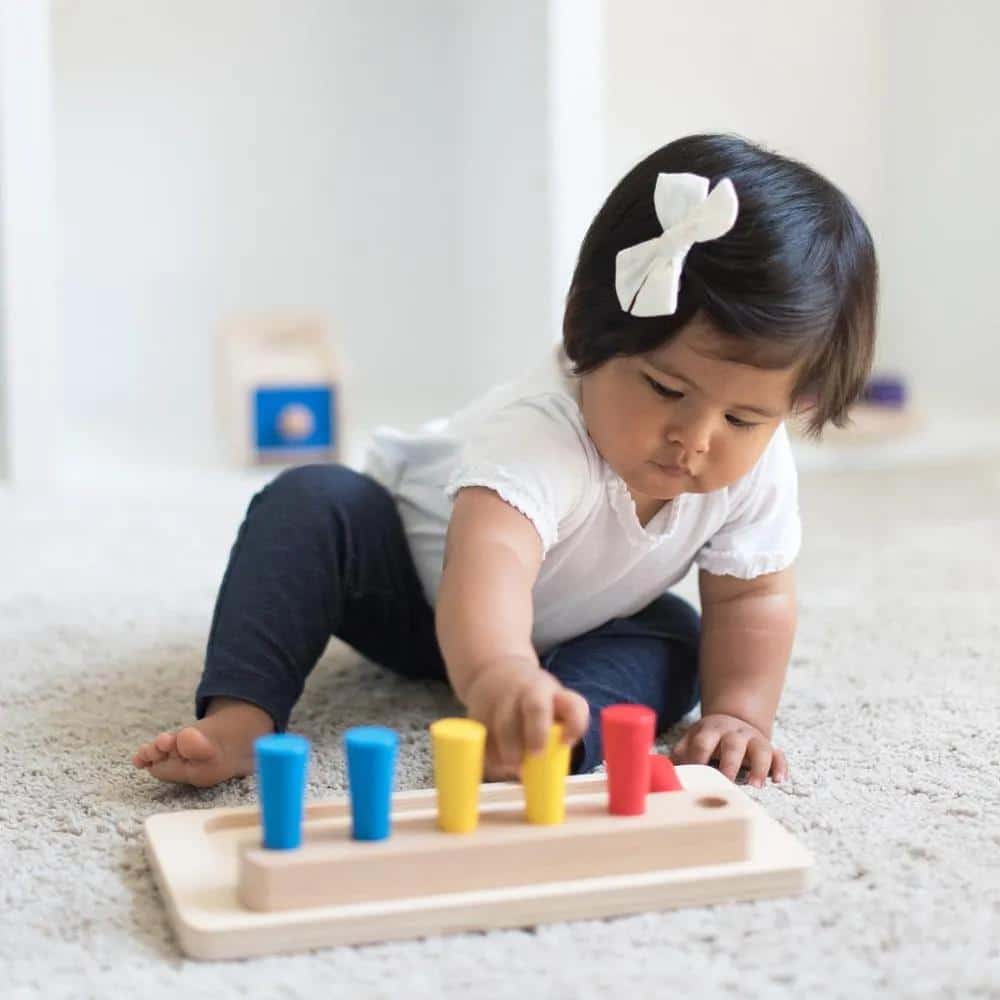
1、Daily life education
Daily life exercises include basic movements, living manners, taking care of oneself and the environment. The main purpose is to train children’s coordination of body movements so that they can adapt to the environment and lay the foundation for independent living; and cultivate children’s patience and attention, as well as good habits of mutual help and love for things.

2、Sensory Education
The construction of human intelligence begins with the senses and leads to cognition and intelligence. Since sensory education is the most basic education for the construction of intelligence, Montessori has designed a set of sensory education according to the development of young children’s senses. Its direct purpose is to develop children’s acute senses; its indirect purpose is to develop children’s habits and abilities of observation, comparison, and judgment.

3、Mathematics Education
Mathematics is generally regarded as a difficult subject, and most people are afraid of its “abstract” nature. Therefore, Montessori advocates that mathematics education should start with sensory training, developing the ability to observe and analyze, as well as the habit of concentration and order, then through mathematical teaching aids and teaching activities, the abstract symbols are naturally and sequentially manipulated through the repetition of teaching aids, so that children can easily acquire the concept of number and quantity, and then enter into the four operations, and naturally develop the reasoning habit of “not being afraid of mathematics and liking mathematics”.
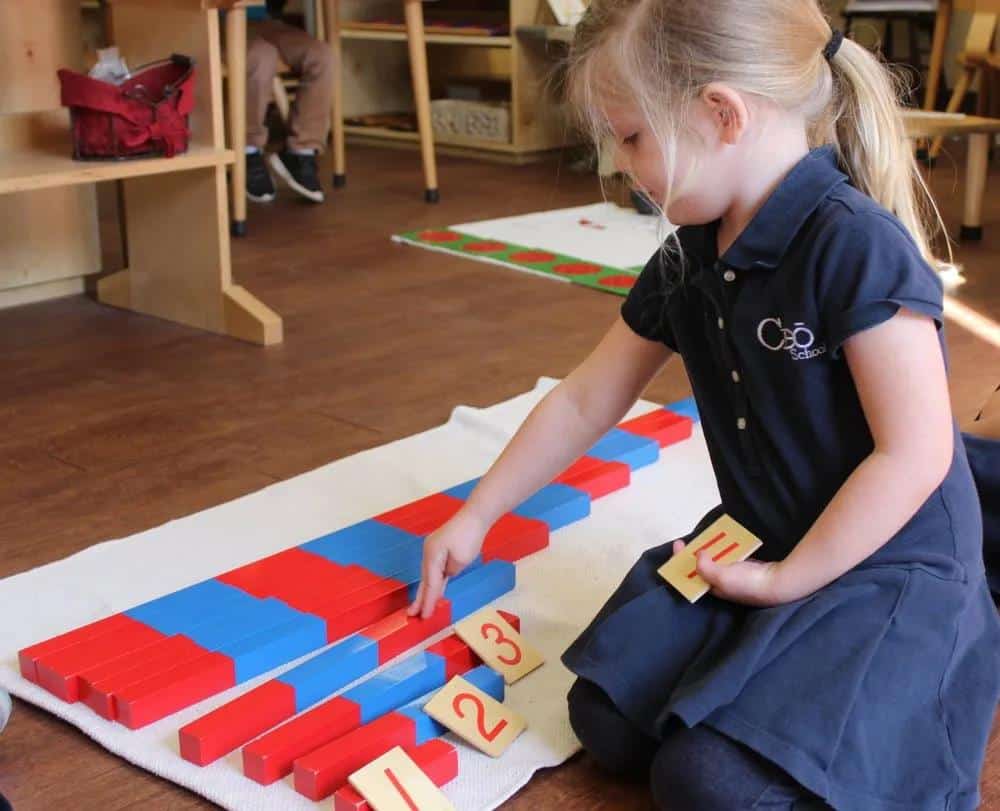
4、Language Education
The age of 0-6 is a sensitive period for language in young children. At this time, if adults can assist children with clear and correct pronunciation and expand their vocabulary, they will be able to develop good language skills. Therefore, Montessori teachers first train the child’s sense of hearing with correct pronunciation so that the child can accurately grasp the pronunciation and then enhance the language skills through ubiquitous and random teaching.
Although the sensitive period of writing does not break out until after the age of five, through Montessori’s daily life training (hand-eye coordination) and sensory practice (auditory, tactile, and visual refinement), children already have the preparatory foundation for reading and writing. With the use of Montessori’s unique language teaching aids – geometric chalkboard, sand letter board, and word cards – children can naturally acquire the ability to write and read.
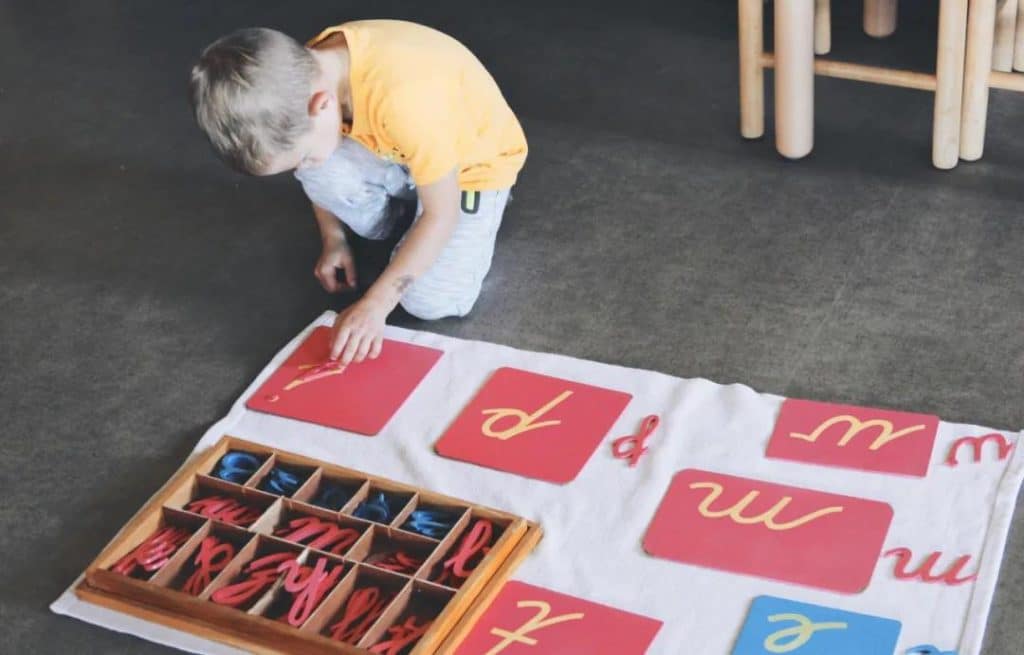
5、Natural and Humanistic Education
The first four types of education focus on the construction of children’s minds and the development of their character, while natural and humanistic education is based on the general human environment and aims to cultivate children’s worldview and cosmology so that they can adapt to the social environment and live happily.
The content of natural and humanistic education includes nature education, history and geography education, music education, and art education. It includes various knowledge of people, places, events, and things related to the human living environment, such as flora and fauna, astronomy, geology, history, music, and art and labor. Most of these teaching aids are designed by Montessori teachers according to the different geographical and humanistic environments in different places, with a strong localization.
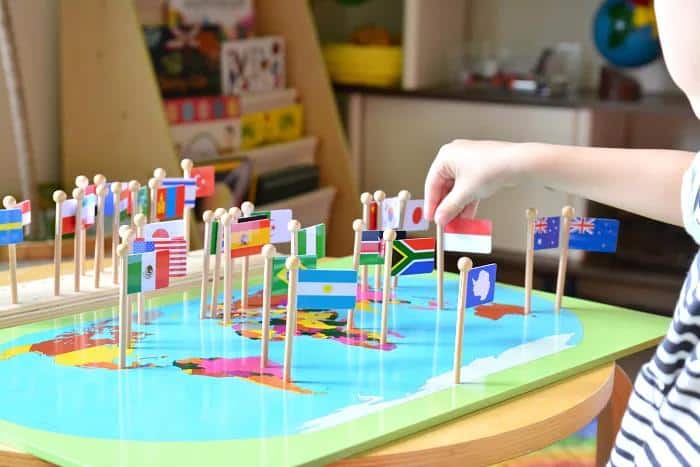
Ten features of Montessori teaching
In the spirit of scientific observation and verification, Montessori discovered the natural law of children’s growth – that is, children have the potential to learn for themselves and to make themselves perfect. Montessori followed this discovery and came up with new teaching philosophy. Because of her new, non-traditional approach to children, she has ten characteristics that distinguish her teaching from traditional teaching.
1、Child-centeredness
We oppose the adult-centered view of teaching and learning, and regard children as separate individuals from adults, just as caterpillars and butterflies are different in shape.
2、Education without “teaching”
Before the age of six, children do not have the ability to recognize and discern differences and are not suitable for didactic education. Therefore, Montessori teaching opposes teacher-centered duck teaching and advocates starting with daily life training, coupled with a good learning environment and rich teaching aids, so that children can spontaneously take the initiative to learn and educate themselves.
3、Grasp the sensitive period of children
Children aged 0 to 6 years old will have specific preferences as they grow up, and if they learn these characteristics during this sensitive period, they can get the greatest learning effect. Montessori teaching places special emphasis on this characteristic to grasp the best learning opportunities for children.
4、Teachers play the role of assistance and guidance
The teacher’s job is to observe children’s inner needs, design the environment for them, and demonstrate the operation of teaching aids, then teach them according to their individual differences and provide timely guidance. This kind of non-teaching education can make the relationship between teachers and students harmonious, and children can naturally learn happily.
5、Emphasis on the development of wisdom and character
The essence and meaning of early childhood education are to help children grow up perfectly. Therefore, Montessori strongly advocates that the purpose of early childhood education is not to prepare children for elementary school, but to lay the foundation of wisdom and character for their whole life and to cultivate good habits of lifelong learning.
6、Respect for the child’s pace of growth
Montessori teaching has no class schedule, no division of start and end times, and allows children to follow their inner needs and concentrate on their work freely. Montessori believes that if a child’s “concentrated moments” are interrupted, he or she will develop a sloppy habit of starting and stopping. Conversely, this extended work time through repetitive practice develops the important good habits of concentration and endurance.
7、Mixed-age teaching
Children of different ages will imitate and learn from each other, and develop good social behaviors such as brotherhood and helpfulness.
8、Rich teaching materials and aids
There are nearly four hundred kinds of teaching aids, which is one of the characteristics of Montessori teaching. These teaching aids are not “teaching” aids used by teachers to teach, but materials for children to work with, mainly to induce children to repeat themselves from shallow to deep, to achieve the purpose of self-education.
9、No reward and punishment system
Montessori has observed for a long time that children do not care about rewards and punishments. The traditional system of rewards and punishments is a means for adults to control children; Montessori teaching respects children’s choice and allows children to have the will and need to learn spontaneously.
10、Teaching results are often presented with explosive power
Montessori teaching trains children in a gradual self-education way, so the learning results are not easily visible in a short period of time, but often show the inner growth of the mind with explosive power.
https://lovevery.com/community/blog/child-development/why-wooden-toys-make-the-best-playthings/


